This post contains affiliate links from which I may receive a small commission, at no extra cost to you. In no way does this affect my opinion or the information I provide on the product. Please read my disclaimer for more info.
Time for the truth on another highly controversial food: SOY!
Some people see soy as a high-protein, nutrient-dense food with a lot of health benefits, and make sure that soy products always have a spot on their plate.
Others are concerned that soy could increase the risk of certain cancers, make men grow breasts, lead to infertility, cause acne…
I understand that it can be difficult to know where to stand! So here’s the science on soy: is it good or bad for your health?
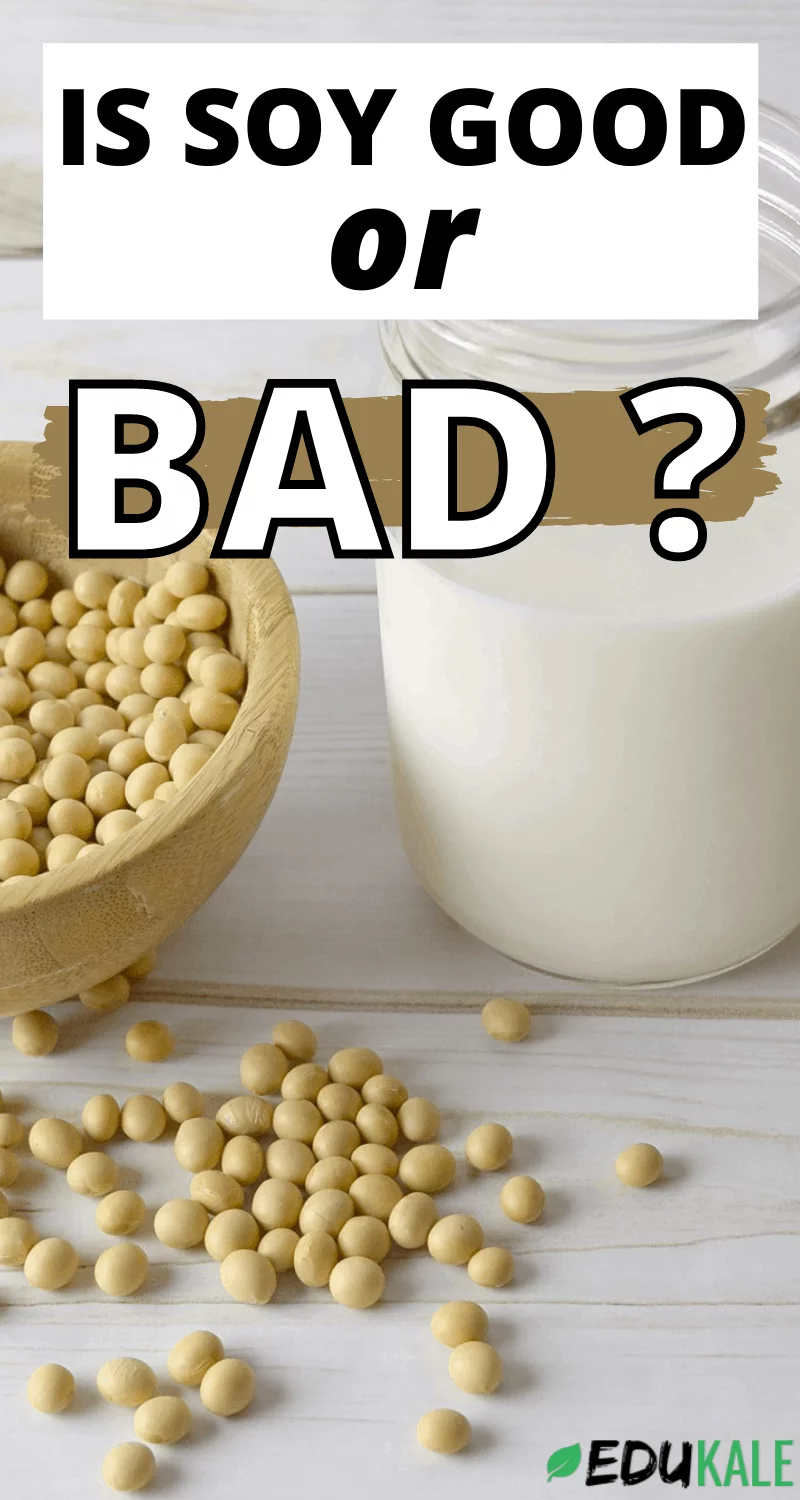
What is soy?
Any type of soy product comes from soybeans or soya beans, a type of legume grown in East Asia. Soybean-derived products include tofu, tempeh, edamame, soy milk, mock meats, etc.
Soy’s nutritional profile.
Soybeans are rich in protein and have a great nutritional profile [1]. They are a good source of fiber, vitamin K, iron, magnesium, manganese…all while being very low in sodium and cholesterol.
Soybeans are also a good source of polyphenols [2], a type of antioxidant. Antioxidants help defend your cells from the damage caused by free radicals, so they are of great importance. You can read more about antioxidants and where to find them here!
Fermented soy products, like tempeh or natto are also excellent for your gut health because they contain beneficial probiotic bacteria. (More information on gut health and beneficial foods for a healthy gut here!)
So nutrionwise, soy is a great food.
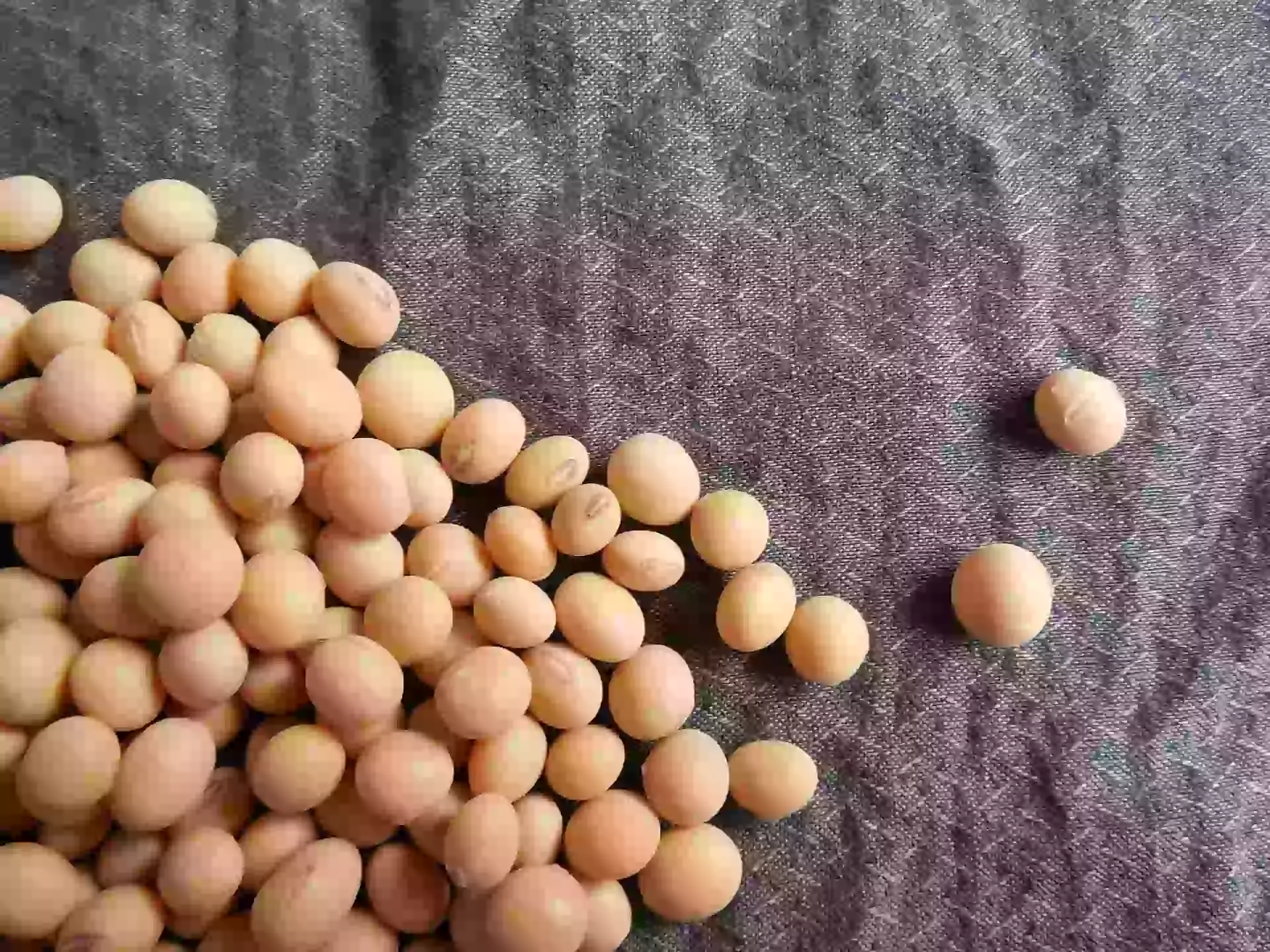
The health benefits of soy.
A myriad of studies link soy consumption to various health benefits. A meta-analysis [3] looking at the effect of soy consumption on heart health showed that eating soy was inversely associated with the risk of cardiovascular disease, stroke, and coronary heart disease.
This means that those who ate more soy had fewer chances of developing these diseases.
Another meta-analysis [4] showed that soy lowered blood pressure in hypertensive individuals. It was also shown [5] that diets rich in soy foods could help lower the “bad” LDL cholesterol and raise the “good” HDL cholesterol.
This was strongest when the foods were whole soy foods, such as soybeans, tofu, and soy milk, rather than processed soy foods. Soy has also been shown [6] to have a beneficial effect on bone health and help reduce bone loss in menopausal women.
Is soy bad for your health?
The truth about isoflavones
The reason why soy is so controversial and why so many people think that soy is bad for their health is mainly because of isoflavones. Isoflavones are phytochemicals that are found in high quantities in soy.
They are phytoestrogens, meaning that their structure is similar to estrogen, a hormone responsible for female characteristics of the body. This means that the phytoestrogens are able to bind to our body’s estrogen receptors.
This is where people start to get scared about the impact of soy on their health, thinking that eating soy will have the same effect as taking estrogen. But it’s a bit more complex than that.
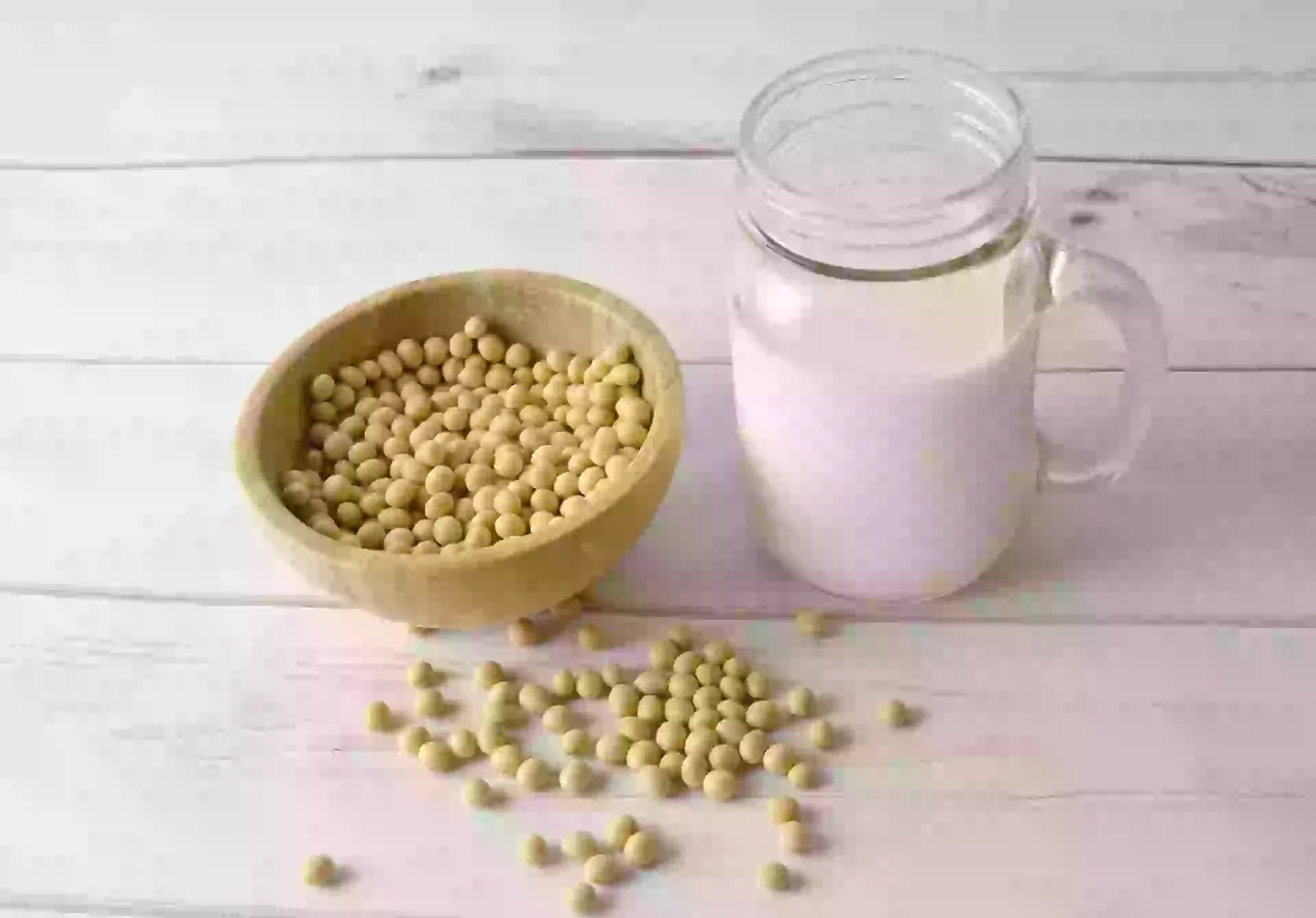
The estrogen receptor exists as two subtypes, alpha and beta. Alpha promotes cell growth while beta has anti-growth properties, and isoflavones preferentially bind to the beta estrogen receptors.
They also bind pretty weakly to the receptors, so their effect is poor [7]. Isoflavones are actually selective estrogen receptor modulators, as they activate different receptors in different parts of the body [8].
This means that they can either “fight against” or “support” our body’s estrogen, which makes them an interesting ally. Even though the presence of isoflavones in soy concerns certain people, human research supports the safety and benefits of soy foods.
Potential negative effects of isoflavones were only seen on animal studies and regarding isolated isoflavones, not the actual soy product.
Does soy cause cancer?
Since certain animal studies showed that the isoflavones in soy stimulated the growth of mammary tumors, a lot of people think that soy can cause breast cancer. However, the science now shows that this is not the case in humans [9].
Not only does soy not cause cancer, it may actually prevent it. The consumption of soy is associated with a one-third reduction in breast cancer, and the risk reduction increases the earlier in life you start to consume soy [10].

Furthermore, many meta-analyses [11, 12] of epidemiological studies on women who consumed a lot of soy showed that the more soy the women ate, the more their risk of breast cancer decreased.
A study [13] also showed that among women with breast cancer, consuming soy foods was associated with a decreased risk of death and recurrence. (It’s important to note that this study is funded by the Soybean Board, however).
Another study analyzed the data on both US and Chinese breast cancer survivors [14], and showed that the consumption of isoflavones was associated with a reduced risk of cancer recurrence.
Similarly, this study [15] found that soy isoflavones could reduce the risk of cancer recurrence in women receiving a certain type of cancer therapy.
Furthermore, soy phytoestrogens appear to restore the expression of BRCA genes, which are cancer-suppressing genes. This means that, while cancer is able to turn off the protection that these genes confer, soy phytonutrients are able to turn it back on [16].
In short, although the specific constituents/quantities responsible for the anti-cancer effects of soy haven’t all been elucidated yet, it appears that soy isoflavones do not function like estrogen, but instead have anti-estrogenic properties.
Since most breast cancer cases are hormone-receptor-positive, soy isoflavones should be considered a potential anti-cancer therapeutic agent [17].
As for prostate cancer, a review of studies [18] found that soy/soy isoflavones could reduce the risk. There is an inverse association between soy intake and prostate cancer risk. Studies [19] also show that soy isoflavones may benefit patients with prostate cancer.
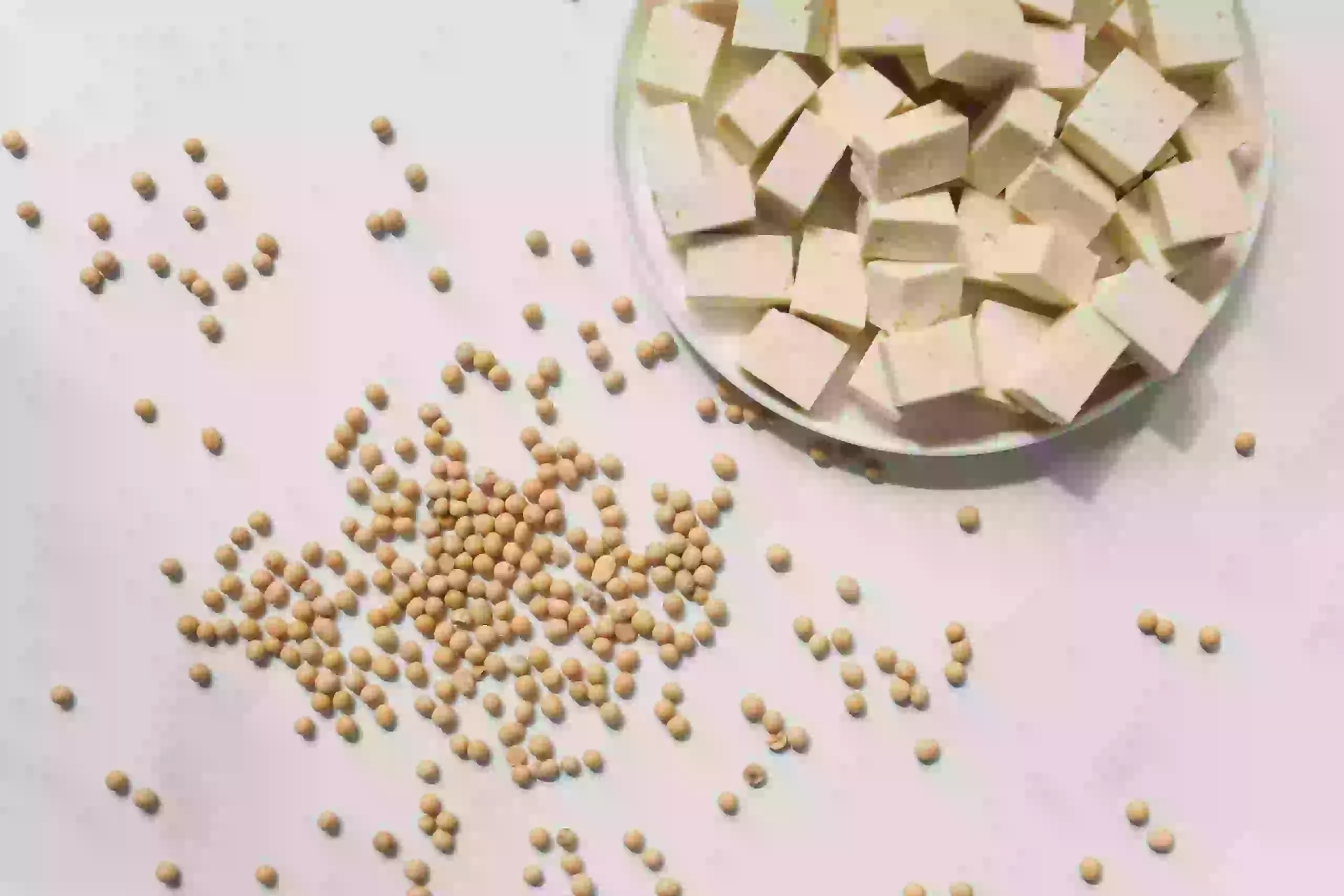
Can soy cause infertility?
Another controversial soy issue relates to infertility, as animal studies [19] have shown that a phytoestrogen-rich diet impairs fertility.
However, this does not mean that it is the case for humans, nor that these high doses of phytoestrogens can be compared to consuming a moderate amount of soy products.
In addition, other animal studies [20] have shown little effect of soy protein isolate on the reproductive process.
Concerning women, the evidence to say that soy impacts fertility is mixed. Some studies [21] show that a high intake of soy isoflavones could have an impact on women’s fertility, while others [22] show that isoflavones are positively associated with the probability of a live birth during infertility treatment.
Another study [23] showed that soy had a beneficial effect among women undergoing infertility treatment.

Concerning men, one study found that soy food intake was not negatively related to in vitro fertilization rates [24]. Another study [25] showed that soy protein isolates did not negatively affect semen quality in healthy young men.
A meta-analysis [26] showed that neither soy foods nor isoflavone supplements altered the concentrations of reproductive hormones in men.
However, this study [27] showed that higher intakes of soy foods and soy isoflavones were associated with lower sperm concentrations. A review [28] showed that phyto-estrogens could alter reproductive hormones and fertility in some studies, while no adverse effects were reported in others.
Even if some results are mixed, the bulk of the research suggests that soy foods are safe in regards to fertility, and will not have feminizing effects on men.
The consensus is that consuming moderate amounts of soy foods (1-2 servings of soy a day) as part of a healthy and balanced diet should not pose any harmful effects to fertility [29].
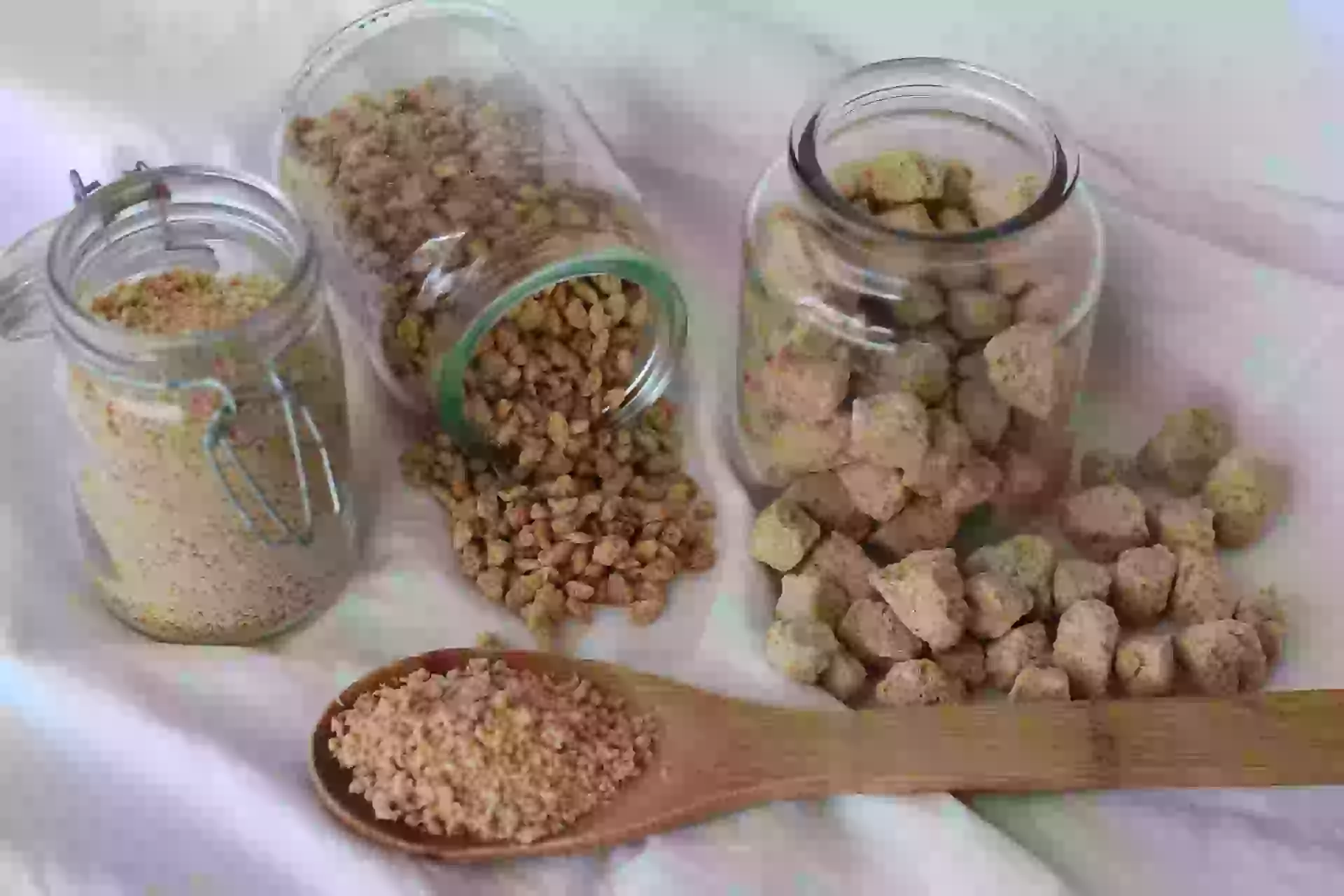
What about GMO soy?
Most of the soy we consume is genetically modified. Research hasn’t yet found any evidence that GMOs could pose a threat to human health. However, studies have shown that genetically modified soybeans contain a less healthy nutritional profile than organic ones [30].
If you’re concerned about consuming GMOs, you can easily opt for organic, non-GMO soy products!
Is soy good or bad for you in conclusion.
Soybeans are highly nutritious foods with plenty of health benefits that can be declined into a variety of delicious soy products. Soy has been shown to decrease cancer risks, is great for heart health, can lower cholesterol levels…
While soy may raise some health concerns regarding infertility and other issues, most studies show that soy is perfectly safe. As of today, the benefits of soy outweigh the risks by far.
Don’t hesitate to add a little soy to your diet!
-Lucie

